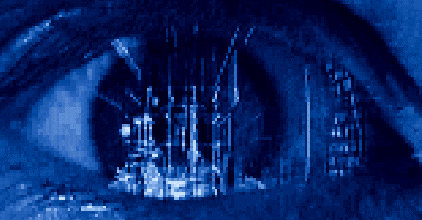The Sage of Cyberspace

William Gibson is one of the most celebrated science fiction authors of the last four decades, and deservedly so. He coined the term "cyberspace," is widely considered the father of cyberpunk, and has been called the "noir prophet" of that sub-genre. I still remember the first time I read Neuromancer - it rocked my world view and altered my perception of the (blurring) borders separating the "real" and virtual universes between which we constantly navigate these days. As somebody who's worked in information technology for decades, I find his insights particularly relevant, prescient, and more than a bit chilling.
I just finished reading Zero History, another brilliant novel that I'd highly recommend. It reinforced for me just how wide Gibson's range really is. This novel is part of the Blue Ant trilogy, Gibson's most recent series. It's set in contemporary (or near-future) times; it's edgy and pushes the technological boundaries, as you'd expect, but has a completely different tone, pace, and theme than the Sprawl trilogy that began with Neuromancer. The Blue Ant characters are quirky, complex, and extremely memorable, and the prose flows as smoothly as a cool stream (although maybe one that channels mercury instead of mundane H2O).
The Sprawl novels, by contrast, go beyond edgy into the territory of razor wire: they're dense, strange, and explode with exotic energies. If the Blue Ant books flow like water, the Sprawl books bubble and boil and give off feverish heat like lava. Anyone who's seen the Matrix films will recognize the signs that Gibson's Sprawl trilogy inspired many aspects of what unfolded on the screen.
The Bridge trilogy, which started with Virtual Light, was published in between Sprawl and Blue Ant. These novels have yet a different style and rhythm than those in the other two series. They're urban noir stories told with wry, sardonic humor and a sociological focus, rich with dark observations about where "runaway capitalism" may be taking us as a society.
All of these series are clever, thought-provoking, woven into a fabric of ideas that intermingles threads in ways that challenge any reader. They're also different (and nuanced) enough to offer something to appeal to any taste.
As a guy who pays the bills by working in "cyber-security" these days, I'm amazed by William Gibson's foresight: he envisioned the rise of the internet, as well as the ways this new digital frontier would be exploited by criminals, governments, corporations, activists, and even terrorists. SF writers aren't oracles, but sometimes they see future trends with remarkable clarity. Gibson may not have a crystal ball, but he has a crystal-clear inner eye and the ability to translate his imagination into unforgettable stories.
If you haven't yet had the pleasure, I strongly recommend immersing yourself in one or more of William Gibson's worlds. The tough part is deciding where to start!
#SFWApro
Published on February 01, 2015 05:48
No comments have been added yet.
Work in Progress
Random musings from a writer struggling to become an author.
- Brian Burt's profile
- 51 followers












